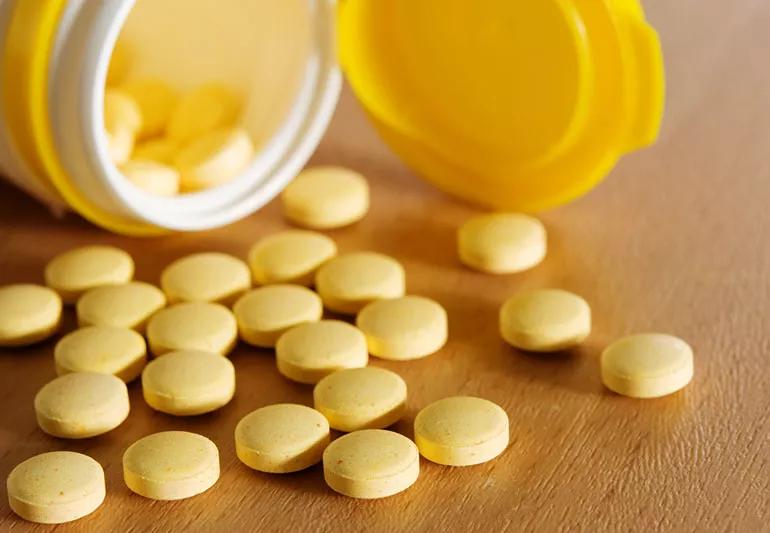Studies reinforce its role in specific types of patients

Image content: This image is available to view online.
View image online (https://assets.clevelandclinic.org/transform/1f492e87-0cf4-414c-bdb7-56f0ae1c047b/niacinCholesterol-185116872_770x553_jpg)
niacin and choletesterol
Most people who need to control their cholesterol levels are prescribed drugs called statins if lifestyle changes alone aren’t successful.
Advertisement
Cleveland Clinic is a non-profit academic medical center. Advertising on our site helps support our mission. We do not endorse non-Cleveland Clinic products or services. Policy
There are also some medications that can help lower cholesterol, such as ezetimibe (Zetia), bempedoic acid (Nexletol®) and PCSK9 inhibitors including alirocumab (Praluent®) and evolocumab (Repatha®).
Another agent that is sometimes used to manage cholesterol, niacin (or vitamin B3), has been the subject of much debate, due to questions about its effectiveness and safety, and because of side effects such as itching or facial flushing.
Leslie Cho, MD, Director of the Women’s Cardiovascular Center at Cleveland Clinic’s Heart and Vascular Institute, says that niacin has only a very limited role when used judiciously in specific types of patients.
Niacin is a B vitamin that’s sold as a supplement and in higher doses as a prescription drug.
When taken at prescription-level doses, niacin has been shown to lower LDL "bad" cholesterol and to improve “good” HDL cholesterol levels, as well as to lower triglyceride levels. It works by blocking the enzyme responsible for making cholesterol in the liver.
But it’s not for everyone. “We only use niacin with people who do not want to take other agents,” Dr. Cho explains.
Studies reinforce this approach. “The largest niacin trial to date found that, in patients with a history of cardiovascular disease whose cholesterol levels are well controlled, niacin really doesn’t reduce cardiovascular risk and it may cause harmful side effects,” Dr. Cho says.
Advertisement
That trial followed 25,000 patients who were taking statins to lower their LDL cholesterol levels. They were randomized to also receive either placebo or extended-release niacin (along with laropiprant, a drug that was previously used to decrease the flushing caused by niacin). Adding the niacin to statins for an average of five years did not reduce the risk of patients experiencing a major vascular event like heart attack or stroke.
A significant number of different types of serious side effects have been associated with niacin therapy. They include skin rashes, gastrointestinal problems, complications with the management of pre-existing diabetes, an increased risk of developing diabetes and a slight increase in intracranial bleeding.
“We have known for a long time that niacin increases the risk of diabetes — it doesn’t cause diabetes, it just brings it forward,” Dr. Cho says. “Niacin can also cause more gout.”
Other side effects identified in studies that may require further research included infections and bleeding, particularly in the gut and brain.
Large studies of niacin have limitations. For example, they studied niacin on top of statins, rather than alone, so it’s difficult to distinguish which effects may have been caused by which drug.
For now, doctors are using it cautiously and sparingly.
“Statins are our first line therapy — and now there are other safe and effective agents that also lower LDL,” Dr. Cho says.
It’s also important that people do not try to treat themselves with niacin supplements. If you have high cholesterol, talk with your doctor about the best way to get your cholesterol under control.
Advertisement

Delivered every Tuesday!
Sign up for our Health Essentials emails for expert guidance on nutrition, fitness, sleep, skin care and more
It's a letter about the news!
Learn more about our editorial process.
Advertisement
LDL cholesterol and lipoprotein (a) cholesterol are more likely to stick to your arteries and lead to dangerous heart events
If you’re eating more than one egg per day, you might want to cut back
Your family tree may increase your risk of high cholesterol and heart disease
Understanding the difference between ‘lousy’ and ‘healthy’ cholesterol can help you keep your heart healthy
Spoiler alert: The potential benefits of drinking alcohol may be a tad overstated
An expert explains the link
The right lifestyle changes can make all the difference
Not all cholesterol-rich foods are bad for you
Type 2 diabetes isn’t inevitable with these dietary changes
Applying a hot or cold compress can help with pain
Pump up your iron intake with foods like tuna, tofu and turkey